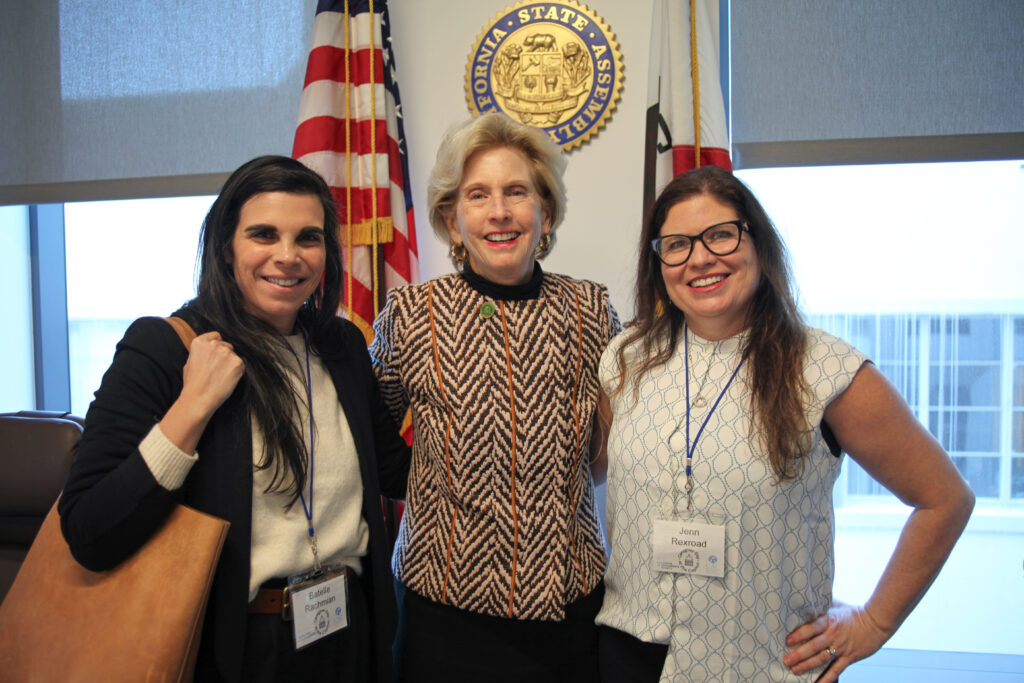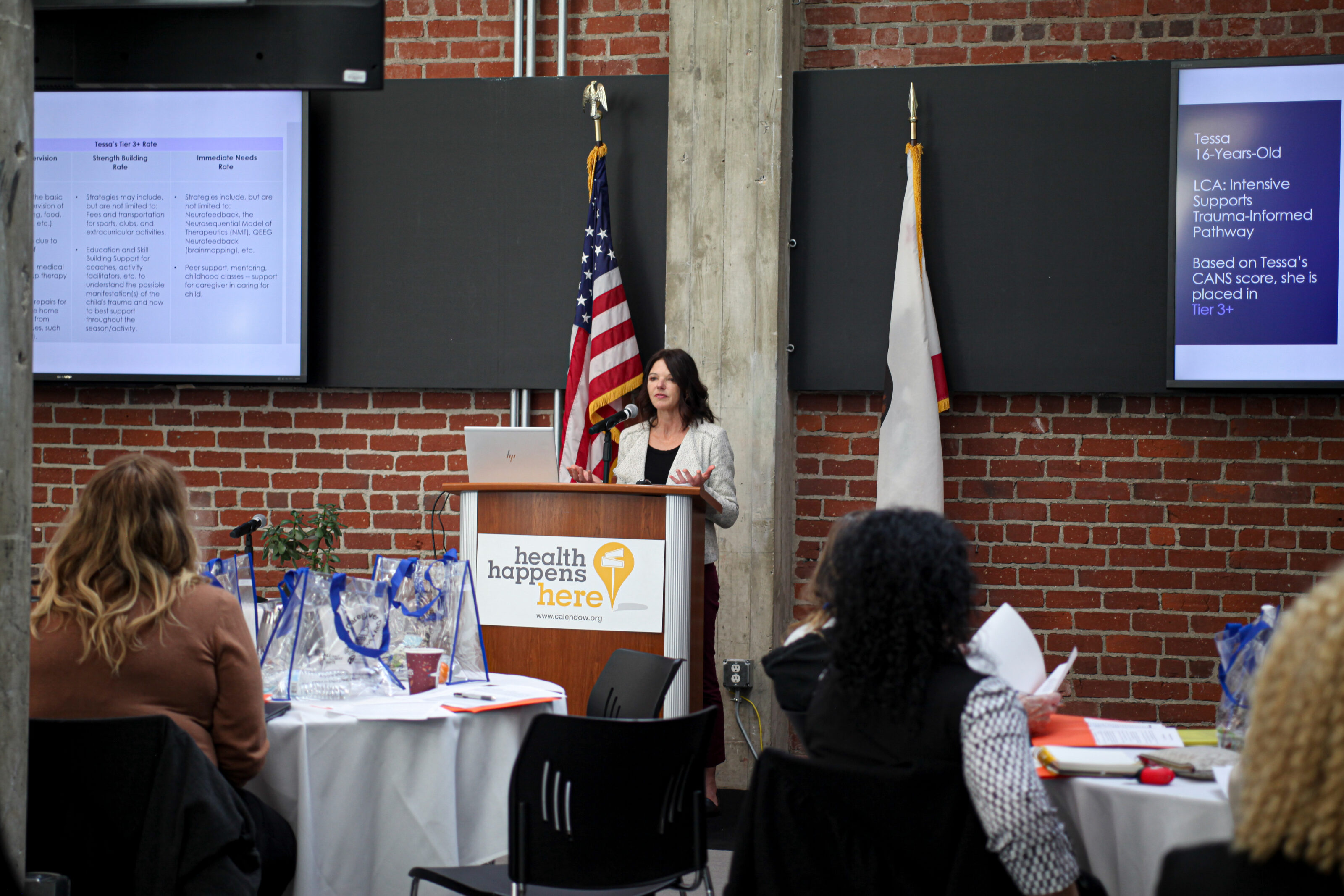On Tuesday, February 27, the Alliance for Children’s Rights and the California Alliance of Caregivers hosted the 2024 Caregiver Day at the Capitol in Sacramento.
This annual event was held for caregivers to learn more about the policies that impact child welfare and to speak with decision-makers at the Capitol regarding relevant policy issues that affect youth in foster care. We were honored to have California Department of Social Services Chief Deputy Director Angie Schwartz and County Welfare Directors Association of California Director of Policy Diana Boyer as our guest speakers. This year’s Caregiver Day at the Capitol was another incredible day of networking and advocacy with 70+ caregivers, providers, and advocates from across the state. Their voices carried our message throughout the Capitol and to leaders within the administration in over 75 advocacy visits. We appreciate Hop, Skip, Drive for their sponsorship of the 7th annual event.
Our advocacy focus was on two key budget issues for the 2024-2025 fiscal year (FY):
- Family Urgent Response System Elimination – The Governor’s FY 2024-2025 proposed budget eliminates the dedicated supports and services of the Family Urgent Response System (FURS) ($30 million General Fund ongoing) which was created by and for youth currently or formerly in foster care and their caregivers to provide critically needed, immediate, 24/7, individualized, trauma-informed support. This critical program ensures children and youth in foster care have access to the stability and trauma-informed supports they need to heal from abuse, neglect, and removal from their communities. The Governor’s budget proposal threatens to harm the very children and youth the State has a moral and legal obligation to support and protect. We appreciate that California is facing a budget deficit, however, we must not address this shortfall at the expense of our children and youth in foster care to whom the State has a legal and moral responsibility. We urged state legislators to uphold California’s duty to these children and youth and reject the Governor’s proposal to eliminate funding for FURS, a proven program pivotal to their safety and wellbeing.
- Permanent Foster Care Rates Proposal – Since 2017, the California Department of Social Services (CDSS) has been implementing interim level of care rates for resource families, Short-Term Residential Therapeutic Programs (STRTPs), Foster Family Agencies (FFAs), Intensive Services Foster Care (ISFC), and other specialized models of foster care. State law specifies that these interim rates will expire December 31, 2024, and that the permanent, ongoing level of care rate structure will be established by January 1, 2025. As a first step, the Governor’s January Budget Proposal includes $12 million General Fund in FY 2024-25 to make automation changes for a reformed foster care payment structure, with full implementation anticipated as early as FY 2026-27.
While specifics of the proposal have not yet been released (anticipated in Trailer Bill), in stakeholder briefings to share the vision of what they are trying to accomplish with the proposal, CDSS related that California is proposing to restructure the rates so that they are based on the child’s assessed level of needs and strengths, and not based on the placement type. They also noted that the proposed rate structure invests directly in family-based placements to keep youth connected to their relatives and communities of origin.
Critical to the implementation of any rates structure, we urged the Legislature to ensure clear and comprehensive communication between child welfare agencies/probation offices and caregivers, allowing them to meaningfully take part in discussions that inform foster care rates to support the children in their care. More information is needed regarding how the rate structures are determined, and how caregivers appeal and request rate changes to meet the child’s needs, which may change over time. More transparency regarding the rates will allow caregivers to make informed decisions to ensure the best possible care for the children/youth in their care and promote their well-being and development. Flexibility and timeliness in rate adjustments are essential to accommodate the unique needs of each child in foster care and the caregivers supporting them.






